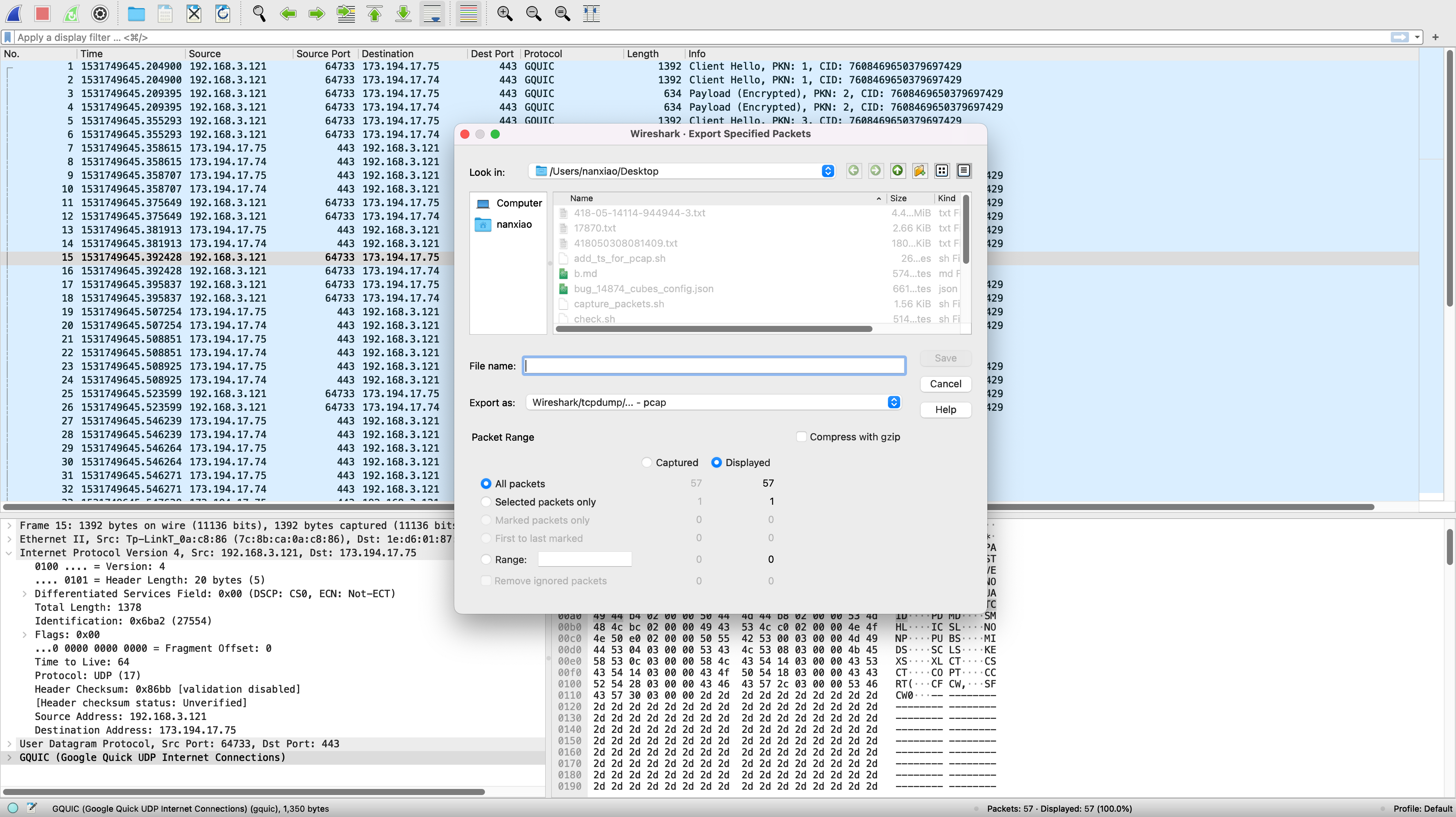Wireshark‘s tshark program can’t process macOS‘s pcapng file well. E.g.:
$ sudo tcpdump -w foo.pcapng
Password:
tcpdump: data link type PKTAP
tcpdump: listening on pktap, link-type PKTAP (Apple DLT_PKTAP), capture size 262144 bytes
^C24 packets captured
27 packets received by filter
0 packets dropped by kernel
Use tshark to read and write the generated foo.pcapng:
$ tshark -r foo.pcapng -w bar.pcapng
tshark: An error occurred while writing to the file "bar.pcapng": Internal error.
I also met following error before:
$ tshark -r apsd-107.pcapng -w foo.pcapng
tshark: The capture file being read can't be written as a "pcapng" file.
macOS has its own bespoke libpcap and tcpdump, so if the pcapng file is generated by tcpdump, using tcpdump itself to process pcapng file seems the only choice.
A workaround is if you don’t care about losing information, you can use wireshark to convert the pcapng file to pcap first:
